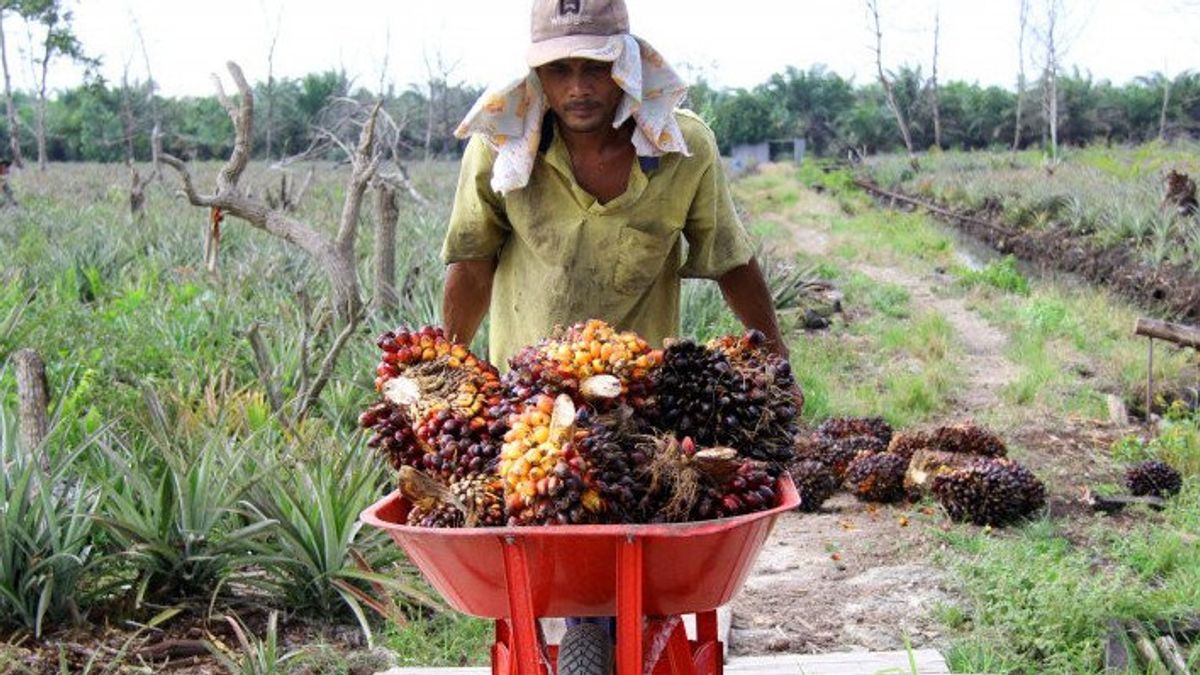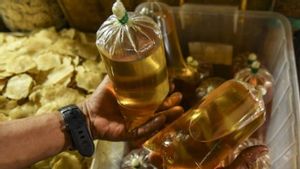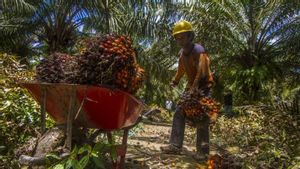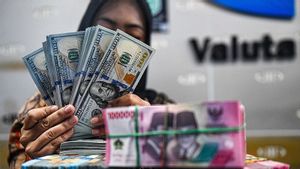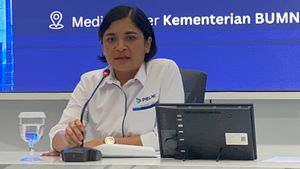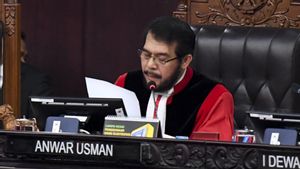JAKARTA - Research Director of the Center of Reform on Economics (CORE) Indonesia Piter Abdullah appreciated the government's decision to lift the ban on exports of crude palm oil (CPO) or crude palm oil and cooking oil raw materials. He considered that lifting the ban would benefit oil palm farmers and small and medium enterprises in the palm oil sector.
"What is clear is that it gives a breath to oil palm farmers. Due to the impact of the export ban, palm oil farmers are the ones most affected. Small farmers and small and medium enterprises in CPO," said Piter, Monday, May 23.
Furthermore, Piter explained that when the economy of oil palm farmers improves, other sectors will follow suit.
"In turn, the release of CPO exports will help the economy in areas in palm oil centers," he said.
According to Piter, the government should think about how to prosper small oil palm farmers first. Because, if the farmers are prosperous, the wheels of the national economy will also spin.
"The government should think about how to prosper oil palm farmers. Because if oil palm farmers are prosperous, our economy will spin," he said.
Piter said the previous CPO export ban policy was quite burdensome for oil palm farmers. Because, they are forced to sell fresh fruit bunches (FFB) of palm oil at a low price because the supply is abundant but not supported by high demand.
As previously reported, the Speaker of the House of Representatives, Puan Maharani, has also warned that the policy of banning the export of CPO products and their derivatives will have an impact on farmers. Therefore, Puan asked the government to fix the entire cooking oil trading system from upstream to downstream.
"The government must fix the market structure and the structure of the cooking oil industry, including the control from upstream to downstream. This is considered to be able to solve the cooking oil problem in the future," said Puan.
Jokowi lifts the ban on the export of CPO and its derivatives
President Joko Widodo (Jokowi) announced that Indonesia would again open the tap for cooking oil exports next week.
"I have decided that cooking oil exports will reopen on Monday, May 23," Jokowi said as shown on the Presidential Secretariat's YouTube, Thursday, May 19.
VOIR éGALEMENT:
Jokowi said this decision was taken by prioritizing several considerations. The first is the increasing supply of cooking oil to meet domestic needs. "Based on my direct checks in the field and the reports I received, thank God, the supply of cooking oil continues to grow," said Jokowi.
"The national demand for bulk cooking oil is approximately 194 thousand tons per month and before the export ban our supply only reached 64.5 thousand tons, but after the export ban in April, our supply reached 211 thousand tons per month, exceeding the monthly national demand," added Jokowi.
The second reason is the decline in the national average price of cooking oil. "In April before the export ban, the national average price of bulk cooking oil was around IDR 19,800 and after the ban, the national average price was IDR 17,200 to IDR 17. 600," Jokowi explained.
Then, the government also considers the condition of 17 million workers in the palm oil industry. Thus, the government decided to lift the export ban that had previously been enforced. However, strict supervision will continue to be carried out so that domestic supplies are still met.
"Even though exports are opened, the government will monitor and monitor closely to ensure supplies are still met at affordable prices," he stressed.
The English, Chinese, Japanese, Arabic, and French versions are automatically generated by the AI. So there may still be inaccuracies in translating, please always see Indonesian as our main language. (system supported by DigitalSiber.id)
